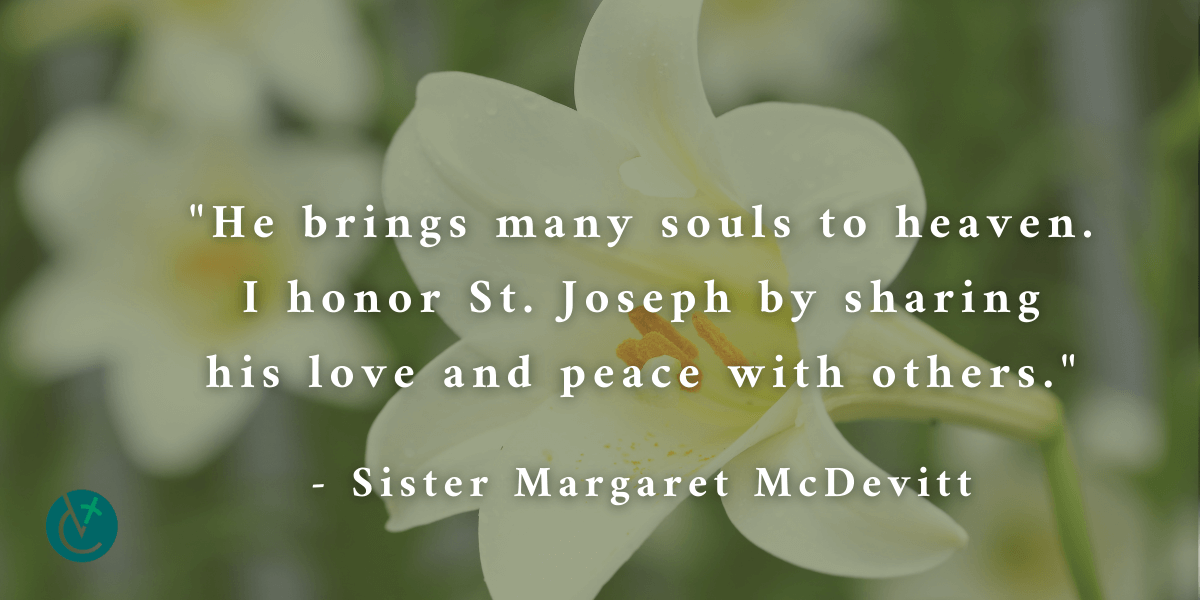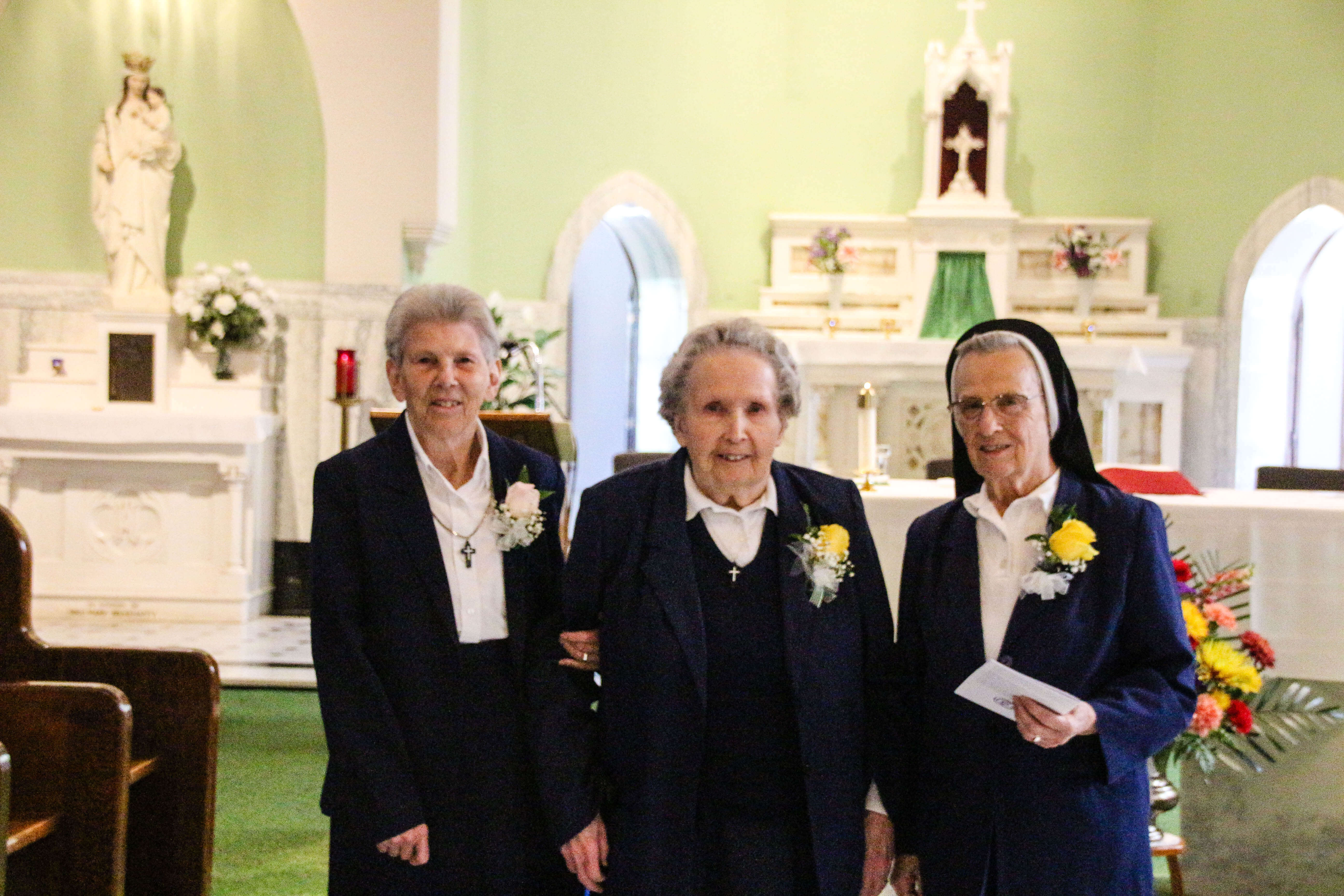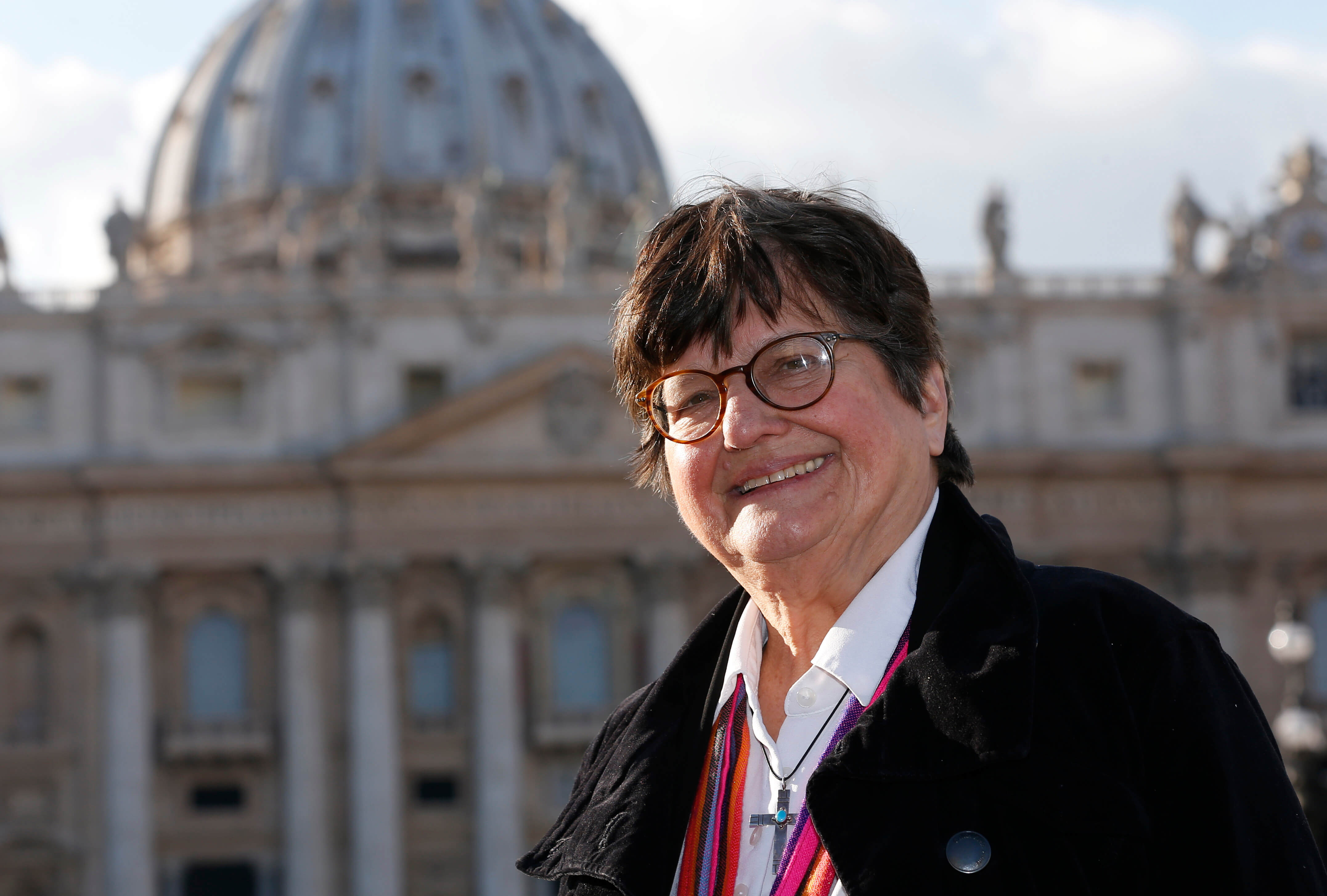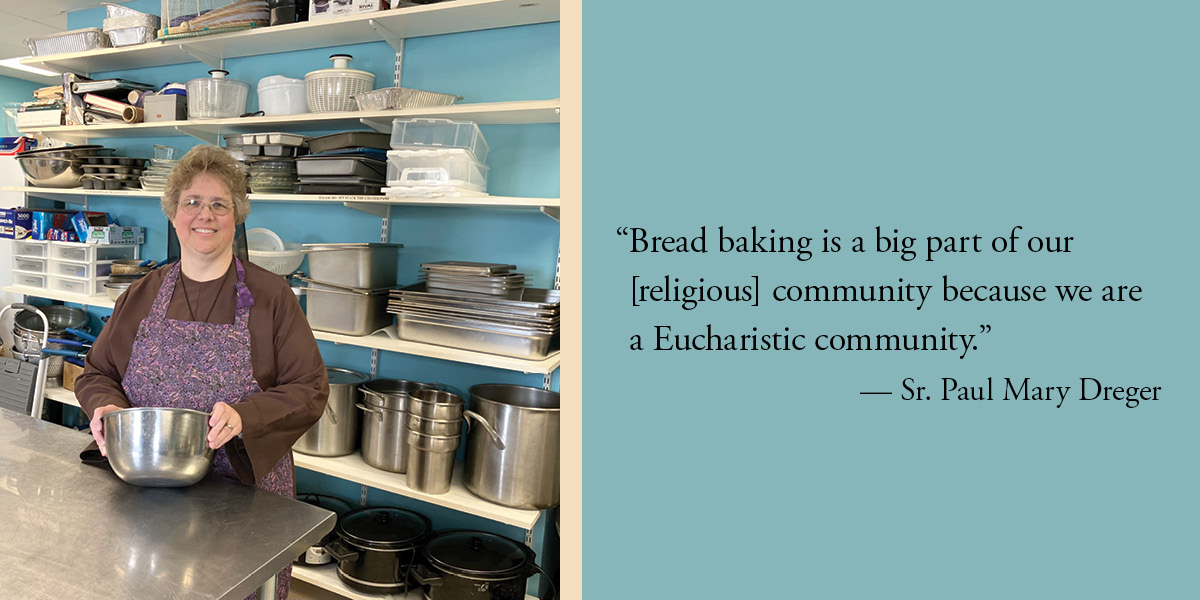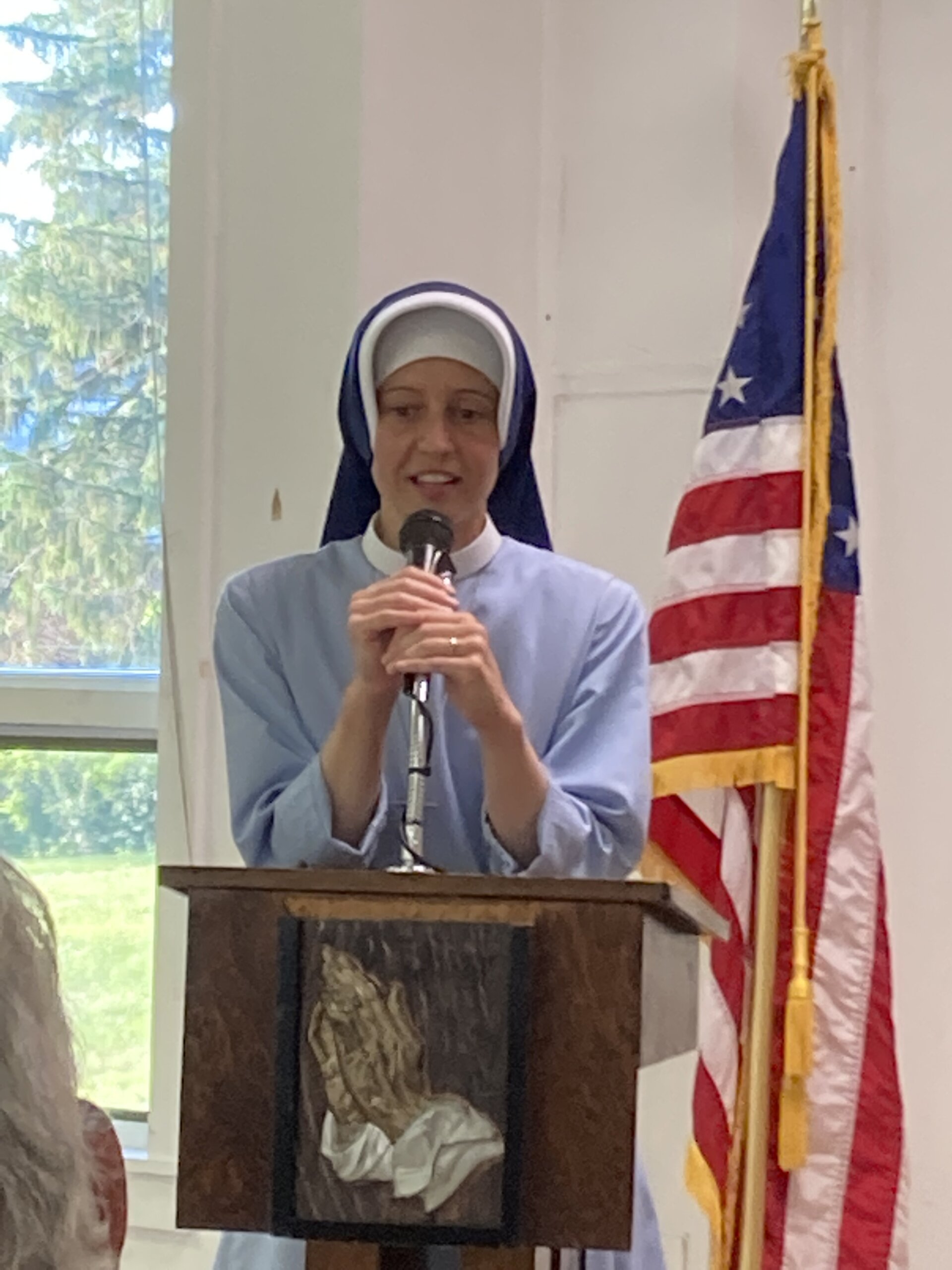Sister Paul Mary Dreger likes to bake, and what she really likes to bake is bread. Kneading the dough for her is a peaceful activity, a way to relieve stress and focus on her prayers for the people who will eat the bread.
And as a Franciscan Sister of the Eucharist, she has a special connection to bread, which at Mass, becomes the Body of Christ.
“Bread baking is a big part of our [religious] community because we are a Eucharistic community,” she said. “If you look at Jesus Christ in the Eucharist, He is the Bread of Life. Bread is essential to our life as Catholics” because at the consecration it becomes the body, blood, soul and divinity of Jesus.
“Our community has used bread baking as an analogy to our lives as Christians, as Catholics,” said Sister Dreger, one of the Eucharistic preachers for the Diocese of Burlington’s observance of the Year of the Eucharist who has been conducting retreats with a Eucharist/bread theme. (At some of the retreats participants make their own simple, white bread.)
Just as bread — the food — nourishes the body and gives energy and strength — the Eucharistic bread — the Body of Christ — nourishes and gives strength to the soul.
“Every culture has some kind of bread. It’s universal,” Sister Dreger said. “Jesus Christ is the Bread of Life, so people can understand that.”
The youngest of six children from a Coast Guard family, Sister Dreger moved often with her family before settling in Connecticut. She earned a master’s degree in early childhood education from Idaho State University and a master’s in theology from Holy Apostles College and Seminary in Connecticut.
She taught — mostly early grades — before entering the religious order in 1998.
She had volunteered in campus ministry at the University of Minnesota and at Idaho State, so that experience helped prepare her for her current position as a campus minister at the Catholic Center at the University of Vermont in Burlington, where she lives.
Because she enjoys baking so much, she often bakes for students — usually in the afternoon, evening or night. Bread is a favorite. Some students say the aroma of the baking bread reminds them of home, and others call the bread “love in a loaf.”
She bakes bread for Lenten bread and soup meals and muffins for Muffin Mondays at the Catholic Center.
“I’ve been baking since I could stand and be in the kitchen with my mother,” she said, but bread baking she learned in her religious community.
Mention the King Arthur Baking Company in Norwich, and her face lights up. “It’s my favorite store! I could spend hours in there,” she enthused. “I love to bake, but baking bread is my favorite thing to do.”
Looking at ingredients simply as individual ingredients “makes no sense,” she said, but “when you put them together in the right way you get delicious pieces of bread that nourish us.”
For Sister Dreger — whose favorite bread is pumpernickel — baking bread is “second nature.” Her recipe for simple white bread includes measurements for all the ingredients except the flour. That’s “about the feel,” she said. “When you knead it, how does it feel? What’s the texture? You have to work with it until it feels right.”
When she is kneading the dough, she prays for the people who will eat it as a way to connect with them in the process of making bread.
But it’s also a time to relax, to find peace. “Sometimes the process of kneading brings clarity,” said the sister who wears a long brown habit and short black veil.
And if she tries a new recipe and the bread does not come out well, she accepts the failure and learns from it. As in life, failure is an opportunity to learn “what you need to do better,” said Sister Dreger, who is always looking for ways to make her bread better. “Our failures allow us to become better.”
Baking bread takes patience, she said, alluding to another life lesson found in bread baking. “It’s hard [to wait] sometimes when you want bread now.”
One of her favorite times to bake bread is before Christmas when she and her religious sisters gather at their motherhouse in Meriden, Connecticut, to make 350 loaves of bread for their Christmas fair. “You feel so good about what you’ve created,” she said. “People are so happy to take it home; it has become part of their family tradition.”
Yet baking bread is never a chore for Sister Dreger. “I get so much joy out of it,” she said.
—Originally published in the Spring 2024 issue of Vermont Catholic magazine.

